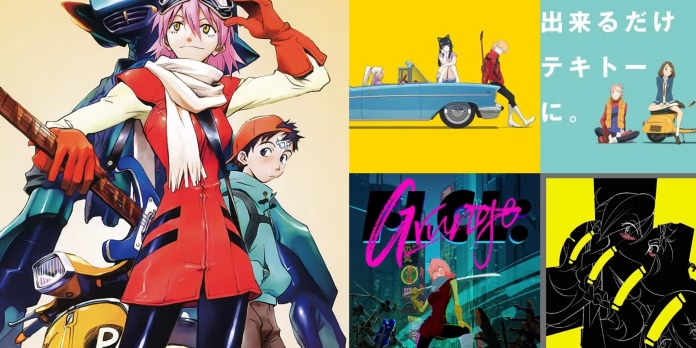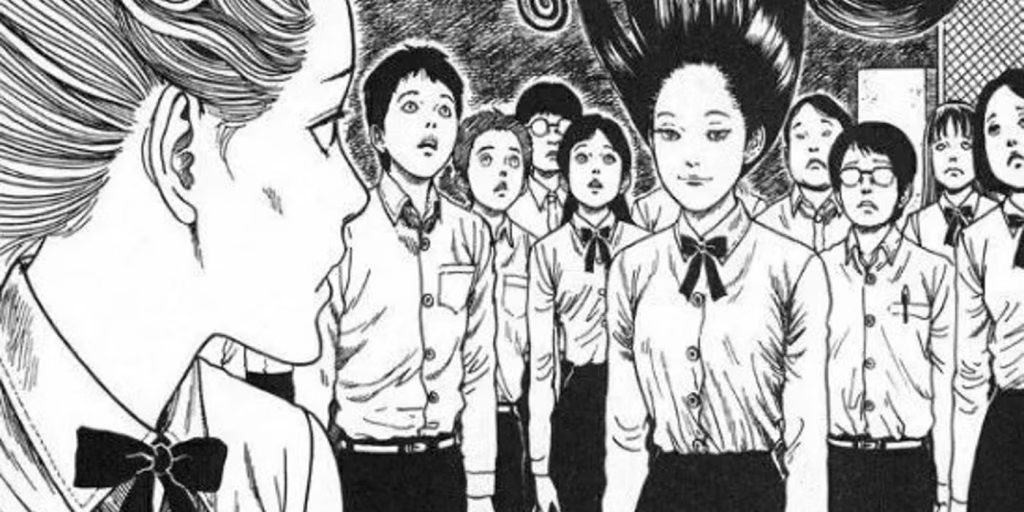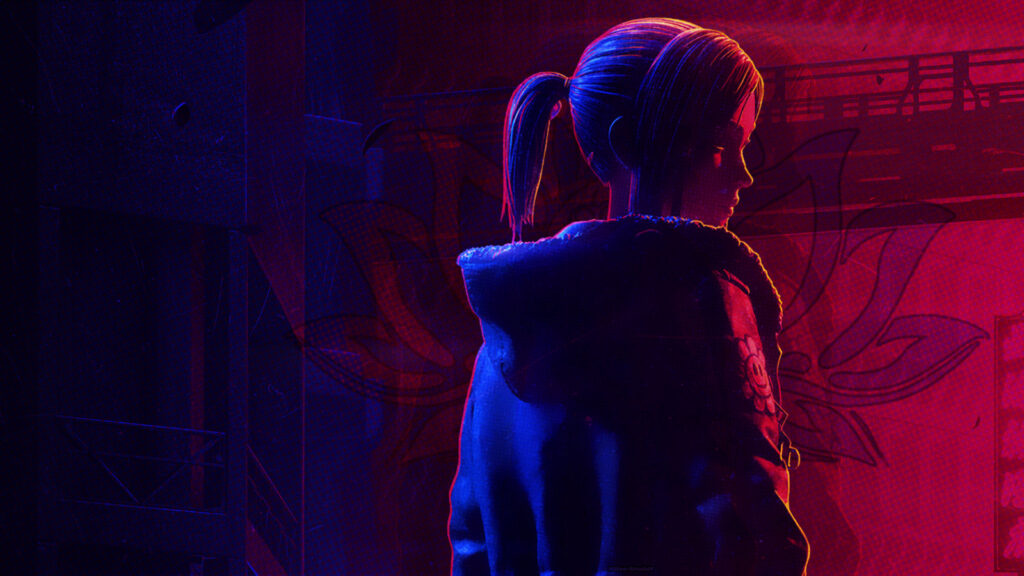As the longest-running animation block in American television, Toonami has gained notoriety for traversing new ground in many different aspects, including, but not limited to, helping propel anime into the mainstream, putting the spotlight on many electronic music artists, and crafting its own universe with distinct characters and a long, overarching plot. Toonami has always been a boundary-pushing cartoon block, and one of the largest ways it breaks the mold is through its bevy of original programming. Despite having a long history of breaking ground that giants like Crunchyroll have previously failed at, Toonami isn’t particularly lauded or well-known for its creation of original programming. Why is that?
To put it simply… The Toonami originals have quite the spotty track record. Toonami has had around a dozen original anime that aired on the block, and the majority of them are either not particularly good, not memorable, or memorable for the wrong reasons.
The most recent original, the long-awaited, highly anticipated, and unfortunately disappointing adaptation of Junji Ito’s Uzumaki is the latest in Toonami’s lineup of letdowns. The series, announced in 2019, drummed up immense hype for its choice of director (Hiroshi Nagahama, director of cult classics Mushishi and The Flowers of Evil), composer (Colin Stetson, composer for Hereditary, one of the most critically acclaimed modern horror films), and its stylistic choice of keeping everything in black and white. After numerous delays thanks in part to the COVID-19 pandemic, the series finally launched in October to widespread praise… but only for the first episode. The high created by the spectacular introduction came crashing down in a total whiplash once the second episode came out. The bad pacing and lackluster animation had fans freaking out in ways the series did not intend. Jason DeMarco took to Bluesky to illuminate a tiny bit of what happened behind the scenes: the series was plagued with production issues, caused by unnamed higher-ups, which led to a momentary studio and director change mid-series. As a result, Uzumaki will go down as yet another entry in the trend of mediocre Junji Ito adaptations. Very unfortunate, because the series did have all of the ingredients necessary to break the cycle, but alas.
Another substandard horror experiment from Toonami, Housing Complex C, shares some accidental parallels to Uzumaki: both were only four episodes long, both had a promising start, and both suffered from rushed pacing and a lack of cohesion in its direction and storytelling. The anime wasn’t a complete critical flop, but it was still forgotten shortly after its month-long run. The most press and discussion about Housing Complex C afterwards came in the form of the short anime being named one of the worst anime of the Fall 2022 anime season by three different writers for Anime News Network.
Promising starts and less-than-stellar endings seem to be a common thing for the Toonami originals. 2021’s Fena: Pirate Princess and 2024’s Ninja Kamui also left fans feeling abject disappointment over what could have been. In Fena’s case, The series had a fairly long streak of great episodes until about the eighth or ninth episode, then became a pacing nightmare as it became more and more evident that the series had nowhere near enough time to tell the story it wanted to tell. Despite its beautiful audiovisual quality and charming characters, the plot completely fell apart by the end, leaving fans with more answers than questions.
Ninja Kamui shared a similar parallel to Uzumaki, where the premiere was the hype-generating peak of the series, and interest declined greatly shortly after. In Ninja Kamui’s case, it was due to its hollow plot and overuse of CGI mecha. Despite how consistently dynamic the action was, the series failed to keep viewers hooked like the first episode did. Although Ninja Kamui did pretty well in terms of viewership and sales on iTunes, the show itself has already been buried in the collective consciousness of anime fans, and is usually only brought up when the subject of “biggest fall-offs in anime” comes up.
Another forgotten recent offering from Toonami, Blade Runner: Black Lotus, has been doomed to obscurity by its parent company. The series, along with several other Toonami originals, was written off by Warner Bros. Discovery, meaning that it won’t see the light of day again. Granted, most Toonami fans did not sweat it much, because the series was just decent at best, and forgettable at worst. Black Lotus didn’t leave much of an impression despite the pedigree behind the franchise it’s centered around, which makes the lukewarm reception feel even worse putting that into account.
It’s not like Black Lotus had a tremendous amount of hype behind it in the first place, with a common thought of “who asked for this?” following the series since its announcement. Many viewers saw the series as an unnecessary entry to a property that was fine as it was. Sure enough, Black Lotus isn’t the only Toonami original to elicit that same reaction. 2024’s Rick and Morty: The Anime, from its announcement day, left fans scratching their heads in confusion, and the full series left viewers even more confused as to why this was produced. The show’s jerky animation, dull plot, stiff humor, and unremarkable voice work failed to impress not only Toonami fans, but also anime fans and Rick and Morty fans alike.
An even greater feeling of “why was this made?” came from the announcement of the widely divisive sequels to the beloved six-episode OVA, FLCL. Several fans disliked that the sequels existed on principle, because the original six episodes told a complete story on their own and didn’t need a continuation, let alone two, a whole seventeen years later. And if that wasn’t enough, Toonami dropped two more additional seasons, or rather, half-seasons, in 2023. Receptions to all the sequel series have been mixed to negative, with the common sentiment being that they completely failed to recapture the experience, quality, and uniqueness of the original. Many viewers saw Progressive and Grunge as nothing but pale imitations of the originals. Meanwhile, Alternative and Shoegaze saw comparatively better reception overall, with the major complaints being Alternative’s confusing ending and Shoegaze’s three episode length leaving it a bit hollow. While I personally enjoyed Alternative and Shoegaze, I’m with everyone who thinks that they didn’t need to happen at all.
Granted, not every Toonami original has been a failure or a show of mediocrity. 2005’s IGPX, the first Toonami original series, still holds up as a somewhat solid anime with a neat concept. Nothing amazing, probably a 7 out of 10 at best, but still a decent watch. IGPX is currently the only Toonami original to stand the test of time, getting several encore runs on TV since the start of the Adult Swim era and also a high definition remaster from licensing company Discotek in 2023. Also, the surprise anime adaptation of video game classic Shenmue turned out decent, all things considered. It wasn’t a perfect ride due to some of its pacing issues, but it did successfully reinvigorate the Shenmue fanbase after the disappointing third entry in the series. Unfortunately, despite gaining a small and devoted following much like the source material, it was one of the aforementioned shows that was written off by Warner, so we won’t be seeing the conclusion to Ryo Hazuki’s journey in anime form.
It really is a shame that Toonami’s original programming has been overall lackluster. Something that should cause excitement has now become something that brings indifference or negative hype. While the push for original anime content still sets Toonami above and beyond the average, everyday television block, the results and the reception leave it as one of the worst parts of an otherwise great block. After Uzumaki, it’s safe to say that my expectations for Lazarus have been diminished greatly, but even so, I’m still hoping for it to finally be the one that breaks the chain. After everything we’ve seen so far, if a Shinichiro Watanabe project can’t escape the curse of middling Toonami originals, then maybe it’s time to pull the plug on this path.
AmpRen (previously Alien.Renegade) is a former staff writer for Toonami Faithful, frequent guest on the Toonami Faithful Podcast and Demon Slayer Podcast, and a music producer/rapper known for creating the “Alien.Renegade’s Toonami Beats” series of mixtapes. You can follow them on Bluesky at https://bsky.app/profile/ampren.bsky.social
Don’t forget to listen to the Toonami Faithful podcast!




